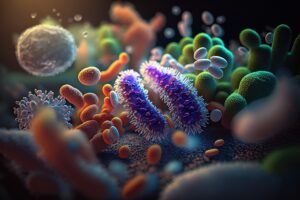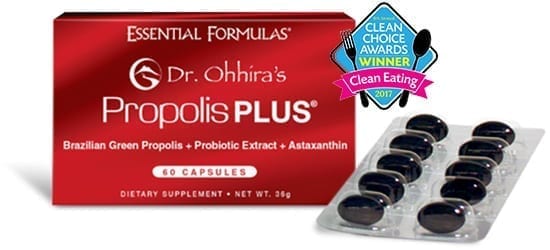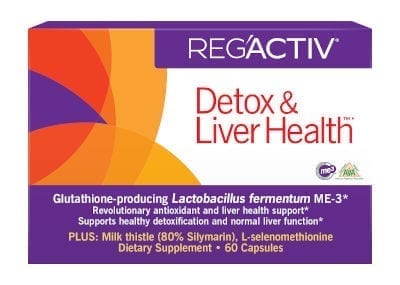By Ross Pelton, RPh, PhD, CCN
As discussed in previous papers the power and success of Dr. Ohhira’s Probiotics are predominantly due to the postbiotic metabolites produced during the natural 3-year fermentation process. These are the compounds that have antioxidant and inflammatory activity, rebalance the acid/base level, fight pathogens, support functioning of the immune system, neutralize toxins, synthesize nutrients, and help to heal intestinal permeability and communicate with the brain.
It has been researched and documented that Dr. Ohhira’s Probiotics contain over 400 restorative postbiotic metabolites. Today I am going to address one of these metabolites, Butyrate.
Butyrate and the GI Tract
A red, inflamed gastrointestinal tract is not a pretty site. The cells that line the digestive tract are named epithelial cells. When epithelial cells are inflamed, the damage they incur can lead to many problems such as gas, bloating, diarrhea, pain, impaired digestion and absorption of nutrients and leaky gut, which increases the risk of developing autoimmune diseases. Consequently, a significant focus on healing dysbiosis and GI inflammation involve stimulating and accelerating the process of generating healthy new epithelial cells to replace the old inflamed, damaged cells.
Many people don’t realize that intestinal epithelial cells in the gastrointestinal tract have the highest rate of turnover of any cells in the body. Scientists estimate that intestinal cells are renewed every 4 to 5 days. This means that humans create an entirely new lining in their GI tract every 4 to 5 days.
It takes an enormous amount of energy for the body to renew these epithelial cells continually. In fact, scientists estimate that from 5-10% of an individual’s daily energy needs are utilized in the constant generation of these new cells. The energy required for the continuous production of these new cells is not delivered by the circulatory system. Instead, it is the short-chain fatty acids (SCFAs), especially butyrate, which provide the energy for this ongoing cellular renewal process. Scientists now realize that the postbiotic metabolite named butyrate is the primary energy source for epithelial cell renewal.
-
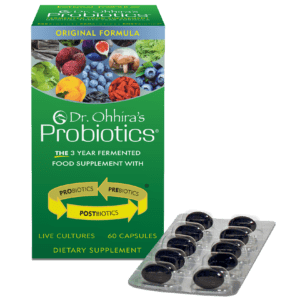 Dr. Ohhira’s® Probiotic Supplements$13.95 – $89.95
Dr. Ohhira’s® Probiotic Supplements$13.95 – $89.95 -
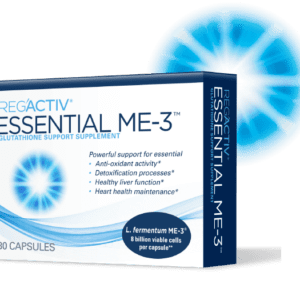 Reg´Activ Essential ME-3$39.95
Reg´Activ Essential ME-3$39.95 -
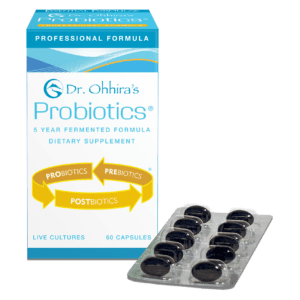 Dr. Ohhira’s® Probiotics Professional Formula$39.95 – $129.65
Dr. Ohhira’s® Probiotics Professional Formula$39.95 – $129.65
Antibiotics are known to kill beneficial bacteria along with pathological bacteria. This drastically reduces probiotic production of butyrate and other SCFAs. The net result is up to a 10% reduction in daily energy, which can cause fatigue. In one study, when healthy young men between 18-25 years old were given antibiotics for three consecutive days, they experienced a significant reduction in VO2max, which is a measure of the maximum amount of oxygen an individual can use during exercise.
Since butyrate is the primary energy source for cells that line the intestinal tract, it seems plausible that butyrate depletion could hinder the process of epithelial cell renewal. What this could result in a substantial reduction in the body’s ability to produce new cells to repair an inflamed, injured lining in the intestinal tract. In fact, antibiotics, which do kill butyrate-producing bacteria, result in substantially reduced levels of butyrate in the intestinal tract. Conversely, increasing butyrate levels resulted in increased growth of intestinal epithelial cells. ,
In addition to enhancing the growth of healthy new epithelial cells in the GI tract, butyrate also helps regulate immunity, supports intestinal barrier function, which protects against leaky gut, and improves GI motility.
Since butyrate is recognized as a very important postbiotic metabolite and adequate amounts of butyrate are critical for a healthy functioning intestinal tract, it is beneficial to know how to increase or optimize GI butyrate levels.
How To Increase Butyrate Levels
Here are some of the most effective ways to increase the amount of Butyrate in your gut microbiome. Next generation probiotics like Dr. Ohhira’s Probiotics are effective at increase gut microbiota levels, but there are other all-natural methods!
Consume more high-fiber foods
Some strains of probiotic bacteria that reside in the large intestine and colon ferment the fiber in these foods to produce butyrate. However, people who take microbiome disrupting drugs are likely to have dysbiosis and a deficiency of butyrate-producing probiotic bacteria. Microbiome-disrupting drugs include the following medications:
Antibiotics, acid-suppressing drugs (PPIs H2 Blockers & antacids), oral contraceptives, hormone replacement therapy (HRT), NSAIDs, steroids or chemotherapy. Low-fiber diets and high-stress lifestyles also contribute to Hence; they will not have adequate amounts of the type of probiotic bacteria to produce butyrate.
Consume strains of butyrate-producing probiotic bacteria
The two most abundant groups of butyrate-producing probiotic bacteria are Eubacterium rectale/Roseburia spp. and to Faecalibacterium prausnitzii. However, these strains are not commonly found in commercial probiotic products.
Take Dr. Ohhira’s Probiotics
Recent independent laboratory analysis has reported that Dr. Ohhira’s Probiotics contain approximately 20 mg/100gm of butyrate. This explains one of the mechanisms that enable Dr. Ohhira’s Probiotics to deliver health-promoting benefits to the gastrointestinal tract over non butyrate producing probiotics.
Butyrate and Inflammatory Bowel Disease
Increasing Butyrate levels in the gut microbiota and human colon has also shown to be effective in treating inflammatory bowel disease.


